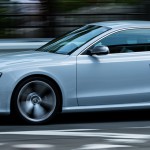The most hackable luxury cars of 2014
 Technology always seems to come a long way in a relatively short amount of time. Recently the media has been reporting on ‘hackable’ cars, not in terms of being physically hacked into, but technologically. The ability to hack into a car may not yet be fully possible, but is it only a matter of time?
Technology always seems to come a long way in a relatively short amount of time. Recently the media has been reporting on ‘hackable’ cars, not in terms of being physically hacked into, but technologically. The ability to hack into a car may not yet be fully possible, but is it only a matter of time?
Does the thought of buying a new luxury car seem less appealing due to the fact that there is a chance that it may be ‘hacked in to’ in the future? This may make it more appealing to buy a second-hand luxury car but, from the study, “A Survey of Remote Automotive Attack Surfaces” some older cars may still be at risk.
We’re all aware of the drawbacks and data security risks of modern technology, but one industry where we don’t tend to think in terms of cybersecurity is the motor trade. “Connected cars” are becoming standard; new vehicles come laden with GPS, Bluetooth and there’s a general trend towards software based management systems. This has led to the study above attempting to highlight the ‘most hackable cars’ on the market.
‘Hackability’ was judged in terms of three key areas: Network Architecture, Attack Surface, and Cyber Physical Features. Roughly, the network architecture is the location, build and design of each of the computers within a car. The attack surface is any location where a hacker can try to modify, alter or enter anything into the system, such as any accessible ports, or points where malicious code can be entered. Cyber physical features include how the computer networks, and interacts or measures its environment, such as in collision detection within cars.
The 2006 Ford Fusion illustrated how anyone interested in older model used cars have far less to worry about in terms of connectivity and ‘hackability’. The 06 Fusion scored double minuses in all categories, but more to the point, this score shows how cars have come on technologically in the last eight years. View current vehicle values and see how they’ve changed over time in a 3-year, 5-year and to-date intervals. Compare these values to other vehicles and benchmark financial indices.
The 2006 Prius and the 2006 Range Rover also scored very low, further serving as benchmarks for old car safety. Contrast this with the 2014 Range Rover Evoque and the 2014 Prius which both scored plenty of +’s.
In reality, we tend to err towards technology despite its pitfalls, and it’s not often we’ll get cybercriminals with a laptop invading our car for unknown gain; but the study does provide food for thought. Those who wish to stay on the safe side of technology could probably do well to buy older versions of marks like the Audi A8. A 2005 version of the Audi A8 on Carmony.co.uk can easily sell for a lot less than the 2014 version with very little risk of software malfunction.







No Trackbacks.